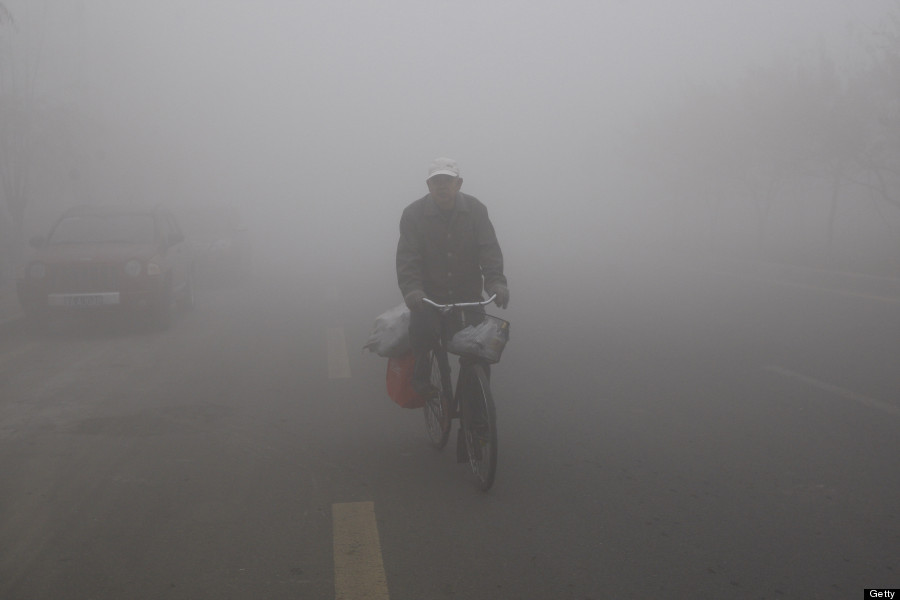Air Pollution in China Shuts Down City of 11 Million
The airpocalypse is back. What should Chinese leaders do about it?
On Sunday, the start of the heating season in northern China brought the “airpocalypse” back with a vengeance (although some might say it never left). Harbin, the capital of Heilongjiang Province and home to 11 million people, registered fine particulate (PM2.5) pollution levels beyond 500 on the Chinese Air Quality Index, which is considered hazardous to human health. Measurements in some parts of the city reached 1,000 micrograms per cubic meter. As a result, authorities forced primary and middle school closures and the shutdown of the airport and local highways.
By contrast, Los Angeles, where I am now based and which typically has some of the worst air quality in the US, had US EPA AQI levels for PM2.5 between 48 and 108.

(STR/AFP/Getty Images)
China’s severe air pollution problems and the high cost to human health, economic productivity, and quality of life are by now well known. The question is whether Chinese leaders are prepared to do what it takes to solve the problem, and, if their stated resolve is genuine, will they have the ability to implement?
As I have talked about previously, there have been some positive signs in 2013. Regulators have engaged in an impressive flurry of policy-making on air pollution, including an extensive “Atmospheric Pollution Prevention Action Plan,” a timetable for developing new fuel quality standards, and emergency measures to protect citizens and reduce pollution on the worst air quality days. Leaders have pledged billions of US dollar equivalent in air pollution investments (see here). And authorities have announced an intention to link bureaucratic promotions to performance against air quality goals, perhaps one of the clearest signals that the leadership is taking air quality problems more seriously (I recently published an article describing how this system works).
But Chinese citizens are not interested in mere expressions of resolve. The key will be in the implementation, and skeptics know that China’s problems in this regard are legion.
In recent years, scholars have talked about China’s “authoritarian resilience,” or the ability of the leadership to learn and adjust to rapidly changing problems. Pro-China commentators like Eric Li have argued that China’s current governance system is well suited to the challenges China is facing. The proof, they say, is in China’s return to wealth and power under Communist Party rule.
China’s extreme air pollution problems, however, are a daily reminder to Chinese citizens (and the world) of a critical failure in governance. The leaders of the country therefore have the chance to prove themselves, and demonstrate that their approach to rule really can serve the people.
(This blog was cross-posted to the Asia Society’s Chinafile.com site. See here for the entire “conversation” with Isabel Hilton and others).








One Reply to “Air Pollution in China Shuts Down City of 11 Million”
Comments are closed.